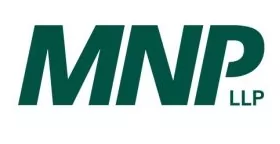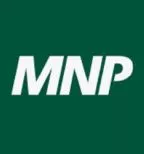Picture this: Newly married Sarah goes to the bank with her husband to get a pre-approval for the purchase of their first home together. Sarah has always been financially responsible, she has no debt, she pays off all of her personal bills on time and only has one credit card in her name. What could possibly go wrong? The bank calls Sarah and her husband the next day and declines their approval, citing bad credit for Sarah. Confused by the turn of events, Sarah contacts a reputable credit report provider to request a copy of her credit report, only to discover a large number of credit cards in her name and a car loan for a car she has never driven. It's clear Sarah has become a victim of identity theft.
March is Fraud Prevention Month and unfortunately, the scenario above is not new or unusual. In 2014, the Canadian Anti-Fraud Centre received almost 26,000 complaints with respect to identity theft or fraud, with estimated losses of over $10.6 Million and even those numbers aren't reflective of reality as the Anti-Fraud Centre estimates that these statistics only represent 5% of victims.
Identity theft and fraud, while oftentimes used interchangeably, are actually two separate crimes. Identity theft refers to the preparatory stage of acquiring and collecting someone else's personal information for criminal purposes, whereas identity fraud is the actual deceptive use of the identity information of another person in connection with various frauds. Oftentimes both of these activities happen without the victim's knowledge or without the thief's knowledge of the victim. Ironically, identity theft and fraud is commonly an anonymous crime.
Identity theft and fraud are an increasing problem in Canada and with the ongoing and ever popular use of the internet to process payments, record and store personal information and the technology wherewithal of thieves increasing, the ability to stop someone from stealing your identity is almost next to impossible. Almost but not completely.
There are many ways that you can decrease the risk of becoming a victim of these crimes and failing these prevention techniques, the best way to limit your losses is with timely detection.
Ways to Prevent
Decreasing the risk of becoming a victim of identity theft is a big business these days, with many companies offering fraud protections services for a fee. Prevention however, doesn't need to cost you anything as long as you are willing to be diligent, consistent and aware. The Canadian Anti-Fraud Centre offers these tips to preventing identity fraud or theft:
- Identity theft can occur over the Internet or telephone, or via fax or regular mail. Therefore, be particularly wary of unsolicited e-mails, telephone calls or mail attempting to extract personal or financial information from you;
- Ask yourself if you really need all of the identity documents you carry in your wallet or purse. Remove any you don't need and keep them in a secure place instead;
- During transactions, it's safer to swipe your cards yourself than it is to allow a cashier to do it for you. If you must hand over your card, never lose sight of it;
- Always shield your personalidentification number when using an ATM or PIN pad;
- Memorize all personal identification numbers for payment cards and telephone calling cards. Never write them on the cards; Familiarize yourself with billing cycles for your credit and debit cards;
- Trash bins are a goldmine for identity thieves. Make sure you shred personal and financial documents before putting them in the garbage and;
- When you change your address, make sure you notify the post office and all relevant financial institutions (your bank and credit card companies.)
A word of warning as well, many people think that banks or credit card companies will cover you in the event that fraudulent transactions happen within your account. While for the most part this is true, be aware of activity that may impact this process. The fine print of your banking and credit card agreements will often limit reimbursement or refuse reimbursement entirely under certain circumstances, such as the use of third party smartphone apps that allow you to combine all of your finance activities through the use of one app. The use of these types of apps, such as the 'Mint' app, may exclude you from receiving reimbursement from your bank or credit card company.
Timely Detection
Because identity fraud is often not detected until the crime has been committed, timely monitoring of bank statements, credit card statements, loan statements and your personal credit report is key to detecting identity fraud. If you have the time, you can submit a request by mail, fax, telephone or in person and receive a free paper copy of your credit report. For a small fee, you can receive your credit report immediately from Equifax or TransUnion. Your free credit report is called a "credit file disclosure" by Equifax Canada and a "consumer disclosure" by TransUnion Canada. It does not include your credit score. Obtaining your credit score does require the payment of a fee.
Responding to Theft or Identity Fraud
If you think you have been a victim of identity theft or fraud, you must act immediately to limit your losses or to potentially recover any losses you may have incurred. The Canadian Anti-Fraud Centre provides a wealth of information with respect to how to report the incident, who to report the incident to and provides victims with tools to assist in reporting the incident to credit providers, financial institutions and any other relevant entities.
The content of this article is intended to provide a general guide to the subject matter. Specialist advice should be sought about your specific circumstances.

